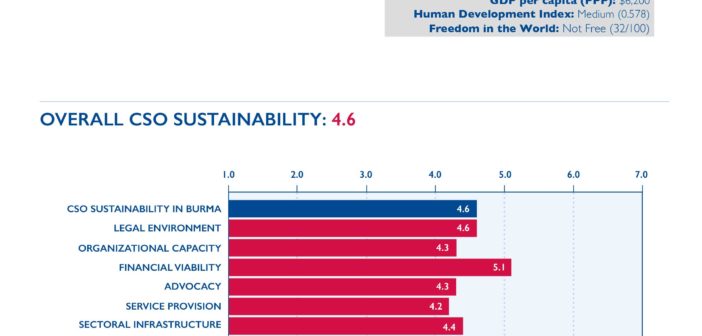Equality Myanmar, FHI360 and USAID launched today the 2017 Myanmar CSO Sustainability Index (CSO-SI) in Yangon. The Report – the first of its kind – assesses the strength and overall viability of the civil society sector in the country as well as analyzes major events occurred in 2017 and how they affected CSOs.
Burma has undergone profound transformation since 2011 after more than fifty years of authoritarian rule. Widespread democratic reforms have been introduced, including the election of Burma’s first post-junta national parliament in decades, the creation of new state-level legislatures, and the gradual lessening of restrictions on civil society and media. The democratic election in 2015 led to the assumption of power of the civilian government
of the National League for Democracy (NLD) in 2016. The elected government initiated additional positive developments, such as the release of political prisoners, the ratification of the International Covenant on Economic, Social and Cultural Rights (ICESCR), and reforms to laws affecting the freedoms of expression and assembly. However, the elected government has continued to use restrictive legislation, particularly a criminal defamation provision of the Telecommunications Law, to stifle criticism of authorities.







